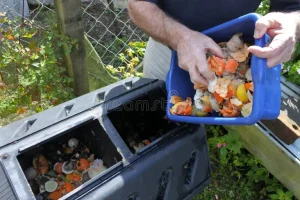There are two main kinds of food waste: food waste and food loss.

Food wastage, a pressing global issue, is rampant in developed countries. In the USA alone, 15 percent of municipal waste is food, with each person discarding 0.6 pounds daily. This daily food waste poses a significant challenge to our world food systems and underscores the immediate need for attention and action.

There are two main kinds of food waste: food waste and food loss. Food loss, a considerably bigger category, is the most alarming. Every time edible food is left uneaten and thrown in the bin, it contributes to this colossal waste. When the crop leaves the field and is not eaten at home or in a store, it is an enormous food waste because it is processed in many ways, from the field to home and the supermarket. The crops are processed from the field to the farmer’s store, made upstanding, packaged, transported and then distributed. After all this processing, those foods get wasted, which is an immense loss of food. “The worst thing is when there’s half-eaten food left on the plate at the restaurant.”
Despite the alarming statistics, there is a ray of hope. We are witnessing a significant surge in interest and efforts towards food waste prevention. This positive trend is a testament to our growing awareness and willingness to rectify our mistakes. While it’s a step in the right direction, there’s still a long road ahead. The effort to minimise food waste is driven by a desire to preserve resources, ensure food security, address environmental impact, and manage the economic costs of waste. This movement is part of a more significant trend in the waste management sector, which is increasingly focused on adopting sustainable practices.
Stony Brook University published an article about the factors contributing to food wastage and their impact on the development of sustainable policies. The article explores how the modernization of the food system has led to an increase in food waste globally. It also discusses effective policy approaches to managing food waste sustainably, focusing on prevention policies and their implementation in the context of behaviours and attitudes that lead to waste generation.
https://commons.library.stonybrook.edu/cgi/viewcontent.cgi?article=1020&context=techsoc-articles

